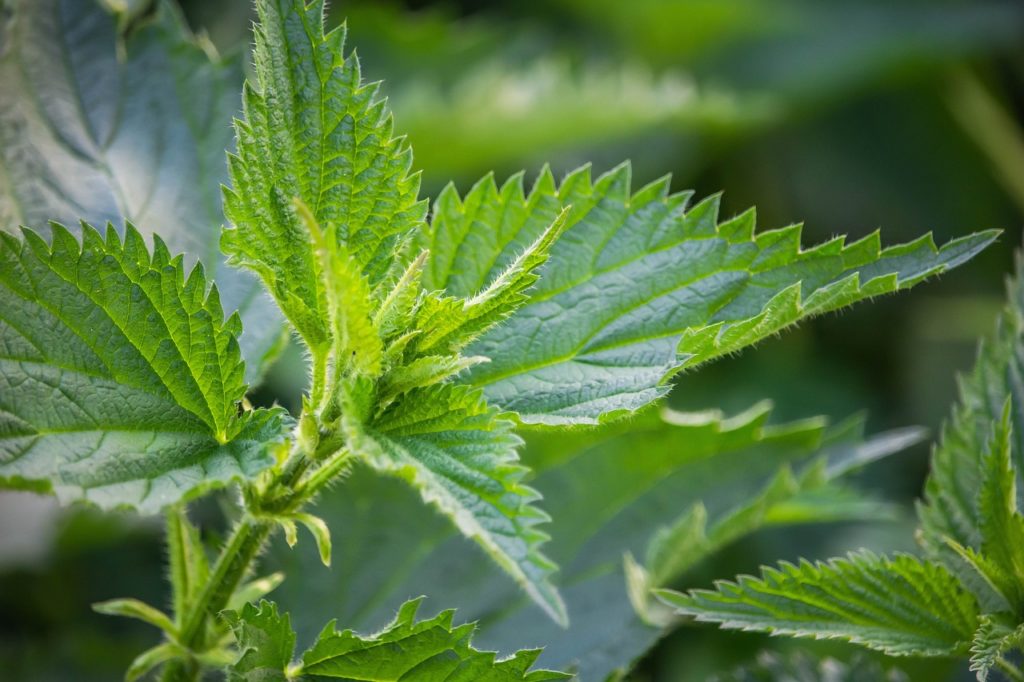Introduction:
Stinging nettle is closely related Urtica urens has a long medicinal history. In medieval Europe, it was used as a diuretic and to treat joint pain.
Uses of Stinging Nettle:
It has been used for hundreds of years to treat painful muscles and joints, eczema, arthritis, gout, and anemia. Today, many people use it to treat urinary problems related to the early stages of an enlarged prostate (called benign prostatic hyperplasia or BPH). It is also used for urinary tract infections, hay fever (allergic rhinitis), or in compresses or creams for treating joint pain, sprains and strains, tendonitis, and insect bites.
Osteoarthritis
The leaves and stems of nettle have been used historically to treat arthritis and relieve sore muscles. It is known that some people find relief from joint pain by applying nettle leaf topically to the painful area. Other studies show that taking an oral extract of stinging nettle, along with non-steroidal anti-inflammatory drugs (NSAIDs), helps people reduce their NSAID dose.
Hay fever
One preliminary human study suggested that nettle capsules helped reduce sneezing and itching in people with hay fever. Researchers think that may be due to nettle’s ability to reduce the amount of histamine the body produces in response to an allergen. More studies are needed to confirm nettle’s antihistamine properties. Some doctors recommend taking a freeze-dried preparation of stinging nettle well before hay fever season starts.
Other uses:
Preliminary animal studies indicate that nettle may lower blood sugar and blood pressure. However, more research is needed to determine whether this is also true in human beings.
Side effects:
There are possible side effects, which can include:
- stomach problems
- urinary issues
- sweating
- hives or rashes
- Diarrhea
Interactions with other drugs:
Antiplatelet and anticoagulant drugs (blood thinners)
Stinging nettle may affect the blood’s ability to clot, and could interfere with blood-thinning drugs, including:
- Warfarin (Coumadin)
- Clopidogrel (Plavix)
- Aspirin
Drugs for high blood pressure
Stinging nettle may lower blood pressure, so it could strengthen the effects of these drugs:
- ACE inhibitors: Captopril, Enalapril, lisinopril , fosinopril
- Beta-blockers: Atenolol, metoprolol, propranolol.
- Calcium channel blockers: Nifedipine, amlodipine, verapamil.
Diuretics (water pills)
Because stinging nettle can act as a diuretic, it can increase the effects of these drugs, raising the risk of dehydration:
- Furosemide.
- Hydrocholorothiazide
Drugs for diabetes
Stinging nettle may lower blood sugar, so it could strengthen the effects of these drugs, raising the risk of hypoglycemia (low blood sugar).
Lithium
Stinging nettle may have a diuretic effect and may reduce the body’s ability to remove this drug.
Nonsteroidal anti-inflammatory drugs (NSAIDs)
In a scientific study of patients with acute arthritis, stewed stinging nettle leaves enhanced the anti-inflammatory effect of diclofenac, which is an NSAID.
Conclusion:
Stinging nettle may have a range of health benefits. However, there is limited evidence to suggest the herb may be useful in treating arthritis, allergies, and benign prostate enlargement.
Stinging nettle is usually safe, but it may cause some side effects. Therefore, it is important to speak with a doctor before using stinging nettle to treat any condition, as it may interact with medications.
